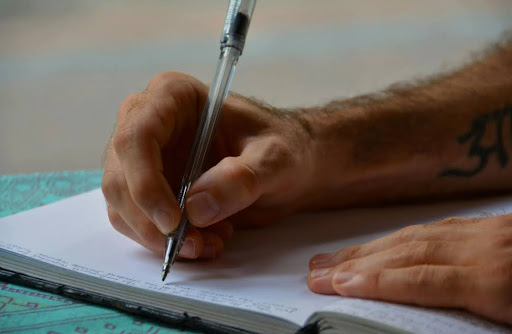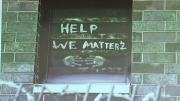Carla Mendez | Staff Writer
Writing is a pillar of sharing the human experience. It has the power to connect, educate, and transform lives. At FIU a class named “Writing as Social Action” has taken to introducing students to the often-overlooked world of the incarcerated. For both FIU students and inmates, this collaboration with Exchange for Change, a South Florida nonprofit devoted to prison education, offers a life-changing opportunity.
Exchange for Change is a program dedicated to providing educational opportunities to prisoners, operating under the firm belief that education is a human right.
Since it began in 2014, the program has grown to involve 102 facilitators and over 1,500 students across six institutions. Partners include the University of Miami, Miami Dade College, and a number of other organizations in addition to Florida International University.
Magali Zoghaib, a student of the class and staff writer for PantherNOW, recounts her beginnings with the program as she stumbled upon the class’s flier outside the library one day. “Even though I had already completed my pre-law requirements, the flier intrigued me,” she shared. “I enrolled for the Summer B session, and it’s been one of the most eye-opening experiences of my life.”
Instead of submitting assignments through a conventional digital platform like canva, students in this class turn in their work through a more personal method: letters. Each student in the class is matched with an inmate and come to form a relationship that allows both sides to learn and develop alongside one another.
“Getting to know my exchange partner at the correctional facility has definitely been my favorite part of the class” Zoghaib shares. She continues to say, “This is something I have never experienced before and it has stirred a lot of emotions that I’ve never experienced before either.”
Zoghaib has found an unexpected connection with her new penpal despite their difference in age and circumstance.
Students in the class have had the opportunity to learn to see beyond their own perceptions or judgements, focusing instead on the shared human experience. “At first, I didn’t know how to connect with her. But after receiving her first letter, I felt at ease with more of an understanding.”
Professor Tanya Lopez plays a crucial role in guiding FIU students and students who are incarcerated succeed in their letter-writing journeys. She challenges students to dive deeper into their thoughts and emotions by assigning topics such as “Why I Write” and “How to Read Like a Writer” each week.
Under her instruction, students gain invaluable awareness into different perspectives, developing not just their communication skills but also their understanding of the human condition.
“This class has taught me not to judge people based on what you hear or see,” Zoghaib expresses. She continues and says, “Getting to know people through letters lets you focus in on their humanity.”
Strict guidelines are in place to guarantee both the safety of participants and the integration of the program. Pseudonyms are used, private information is kept to themselves, and assigned themes are the main focus of the class. “We’re not allowed to ask why they are in prison or reveal our real names. It’s all very anonymous, which is necessary to keep the program alive,” Zoghaib explained.
In 2016, the RAND Corporation conducted a report showing data that proved prisoners who take part in educational programs have a significantly lower chance of committing further offenses and being reincarcerated. According to their research inmates who participate in any kind of educational program are up to 43% less likely to reoffend.
Programs such as Exchange for Change address the root causes of criminal behavior and support people in becoming integrated members of society. By providing prisoners with the knowledge and skills they need to find employment and effectively reintegrate into society, this program of education helps end the cycle of recidivism.
This class exemplifies the transformative power of education and human connection. It has challenged students to step outside their comfort zones and engage with a world they might have never encountered otherwise.
By doing this, it enhances their academic experience and develops a more compassionate and empathetic awareness of others, demonstrating the ability of education to transform lives.





Be the first to comment on "From letters to social action: FIU class partners with Exchange for Change"